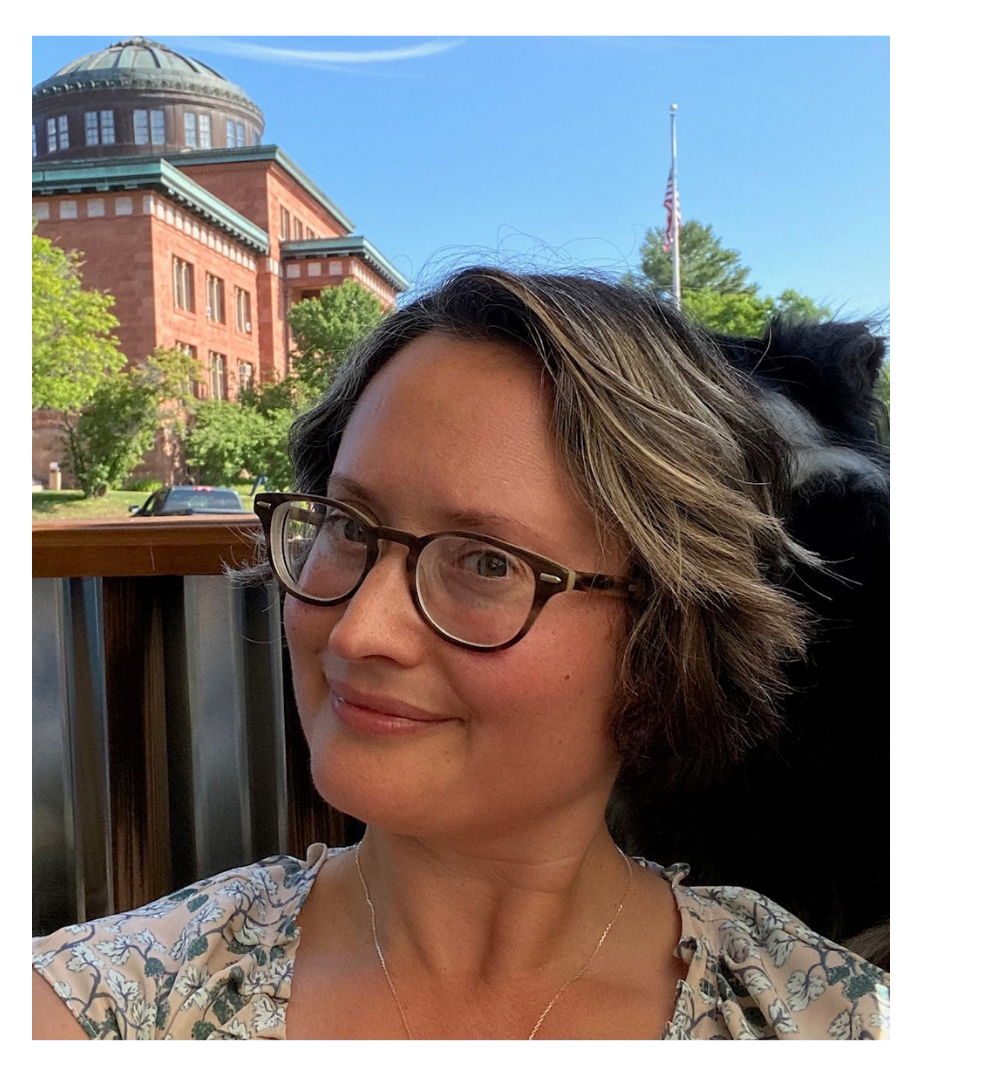re·sil·ience
/rəˈzilyəns/
noun
noun: resiliency
the capacity to recover quickly from difficulties; toughness.
In the Upper Peninsula of Michigan, resiliency is a way of life. Finnish ancestors, who once dominated the region, often referred to the word “Sisu”. It represents strength, perseverance, and thriving in the face of extraordinary circumstances. It is no surprise, then, that something like the Community Resilience Board (CRB) - Trauma exists here in the U.P.
To Monet Borione, CRB-Trauma Marquette Board facilitator, resiliency means bouncing back after hardships, growing stronger and recognizing that this is not just one person’s task.
“I think resiliency is the heart of a skill we never knew we needed the most,” she said. “Building resilience is not just on the individual or family or school, it should be a part of every healthy community.”
CRB-Trauma Marquette is a coalition of professionals who work directly with community members. These individuals come from industries such as law enforcement, social work, local government, public health, mental health, and the county courts, among others. What started as an opportunity to share resources and learn from one another became a community resource for education on trauma. CRB-Trauma Marquette serves children & youth, young adults, parents/caregivers, human service professionals and nonprofits within Marquette County.
The idea of forming a trauma informed Michigan began with the Department of Health and Human Services around 2015. Community engagement varied; while some counties jumped on board sooner than others, some haven’t begun yet. In the Upper Peninsula alone, trauma-informed local coalitions exist in Schoolcraft County and Gogebic County in addition to Marquette. Gogebic was the first to establish in the region.
Borione, who has a background in trauma training within the foster care system, was introduced to CRB in 2017. As a current leader of the Marquette group, she provides trauma training to many including area educators, mental health professionals and home health workers.
When approaching trauma education, the board focuses less on the trauma itself and more on what happens next. This concept is where the name Community Resiliency Board or CRB came from; as a group, their goal is to actively “curb” trauma.
This concept, while always relevant and important, became even more prevalent during the COVID-19 pandemic. While resiliency is something every human possesses, there are different levels with varying perceptions. Details like availability of a support system, level of coping skills and degree of challenging situations experienced are important variables. Borione explained that while we collectively experienced similar challenges, we did not all start on equal playing fields. Those with stable jobs and support systems were not as affected as those struggling to pay rent, battling addiction, living in a domestic violence situation or having other adverse experiences.

As a community, there is now a collective experience of learning and living through trauma. Many have chosen to look at this in a positive way, but those with limited coping skills may be stressed dramatically.
“I think across the board everyone was worried about kids being at home in unsafe situations. We were worried about individuals in domestic violence situations,” Borione said. “There wasn’t always safety. It was a scary time across the community and we can’t ignore those realities, but there are also things we’ve learned and ways we can find compassion for one another as we reflect. “
Due to the pandemic, CRB-Trauma Marquette took a hiatus. When it came time for Borione to reschedule a Trauma 101 training for a school system, she went back into her presentation materials and realized they were no longer relevant. She could not present to teachers as she had in 2019. During her hunt to find trauma related instruction for teachers in a post-COVID world, she found herself researching materials from the Children’s Trust Fund. That’s when she found HOPE, or Healthy Outcomes from Positive Experiences.
HOPE is empirical research data on the impact of positivity as a buffer to adverse experiences. Diving into the research of HOPE energized Borione and she decided to bring it to the CRB team as something they could “grab on to”.
“When I found this data, I had fireworks. I dove into it like it was water for the thirsty person. So much of this data was validating because we always knew there was something beneficial to positive experiences but we could never prove it. In a world of evidence based research, this came through and now we could prove that positive experiences have an impact,” Borione said.
CRB contracted the Early Childhood Investment Corp and hired a HOPE framework researcher. From this came a two part community conversation. The first focused on the details and importance of the research while part two dove into the details. This guided efforts to engage the community and figure out how to use HOPE driven, positive framework in everyday life.
Looking to the future, CRB-Trauma Marquette would like to see the HOPE framework being actively practiced throughout Upper Peninsula communities within a year. This includes educating leaders on the idea of healthy experiences for children buffering against adverse ones. Childhood is when brains are developing and constantly absorbing new information. “It is easier to nurture a growing child than to heal a broken adult,” Borione said.
Introducing the HOPE framework will take strong connections and partnerships on varying levels. Sarah Carlson, Master of Social Work Field Coordinator at NMU, joined because of her experience as a trauma therapist and her role with the University. Her work with students allows her to provide resources when it comes to meeting the mission of CRB.
In the spring of 2020, NMU’s Student Social Work Organization (SSWO) was planning an on-campus screening of the film “Resilience.” CRB had access to the film and the expert panel to support a post-screening discussion. NMU SSWO had access to the space and took on advertising. Unfortunately, the event was canceled due to the pandemic, but the groups look forward to working together and revisiting efforts in the near future.
“Being part of CRB has enabled me to stay integrated and make new connections that support my role as a field coordinator, which involves arranging internships for our Master of Social Work students,” Carlson said. “My biggest hope for the future of CRB is that we start to engage in opportunities to provide education to community professionals and stakeholders on prevalence and impact of trauma, but more importantly, on ways to mitigate the impact of and prevent trauma.”
Another connection from Northern Michigan University is Elise Bur, the NMU Center for Rural Health director. Bur and CRB-Trauma Marquette have been in conversations on ways to support the group’s mission, offering the center’s website as a resource hub. Ideally, Borione hopes to have a representative from every community sector standing behind the HOPE framework. This includes Marquette Area Public Schools, City of Marquette and U.P. Health Systems.
“Already the HOPE framework is being referred to as ‘new data’. It’s eventually going to be in all the textbooks...if it's going to be part of everything soon, let’s be on the forefront,” she said. “Let’s lead this and show what a community can accomplish when it’s understood by leadership and supported down through the organization.”
As CRB works to introduce the HOPE framework across Marquette County, there is plenty of other work to be done. This includes increasing empathy and acknowledging that while we are all different, every community member is seen as valuable. It is easy to judge another person or parent for their behavior, something Borione refers to as the idea of “us vs them”. Instead of jumping to conclusions, she suggests viewing other’s behavior from a trauma focused lens. This means being curious about the message being sent, and what happened to this person to elicit the behavior.
Building resiliency is a constant process, but having a force like CRB-Trauma in the U.P. means this work will always be active. With strong support and community champions, the opportunities are endless.
--
The Northern Michigan University Center for Rural Health seeks to improve the health and well-being of Upper Peninsula residents and communities by developing collaborative partnerships that enhance the access and availability of affordable, quality healthcare services. For questions or comments related to this story, contact ruralhealth@nmu.edu.
